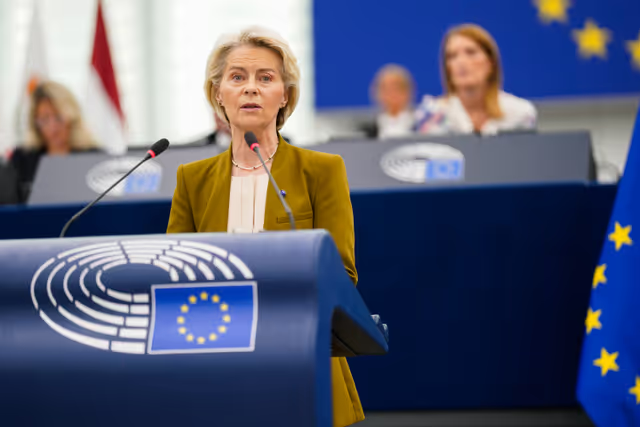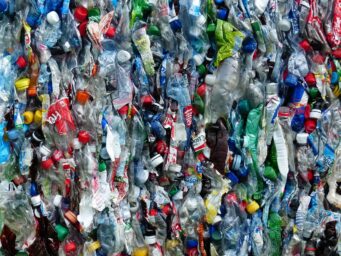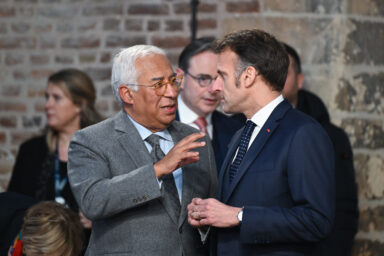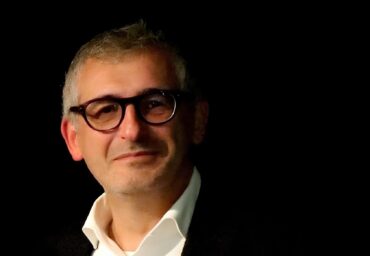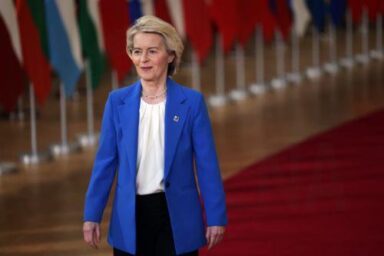“Europe’s independence will depend on its ability to compete in today’s turbulent times.” That is a message Commission President Ursula von der Leyen repeatedly conveyed in her State of the European Union address this week. In times of geopolitical and economic turmoil, Europe still finds itself in a position where existing dependencies —such as on Russia for fossil fuels and China for critical materials— can be weaponised, harming European competitiveness. To overcome this, Europe needs to radically reduce such vulnerabilities, Ms von der Leyen said.
But doing that is not possible if deep divisions within the EU remain. For this reason, she urged member states to uphold unity together. “Do we have the unity and the sense of urgency? The political will and the political skill to compromise? Or do we want to just fight between ourselves? To be paralysed by our divisions?” she asked.
Unity between member states is directly tied to increasing competitiveness. Key measures in this field, such as the establishment of a capital markets union, eliminating barriers in the Single Market, and harmonising rules that still drive up the cost of business, are deeply tied to competitiveness. Yet because they touch national interests, they are politically difficult to deliver.
Nonetheless, von der Leyen reminded parliamentarians what needs to be done to restore European competitiveness.
You might be interested
I believe Europe should have its own E-car: E for environmental – clean, efficient and lightweight. E for economical – affordable for people. E for European – built here in Europe. – Ursula von der Leyen, President of the European Commission
Deregulation and simplification
President Von der Leyen praised the EU’s efforts to reduce administrative burden so far, but reminded EU members that more needs to be done. In this spirit, she said the Commission will propose cutting back €8bn a year of bureaucratic costs for European companies. On top of that, she noted further omnibus packages are on their way, for example on military mobility or digital, all about “making business easier.”
BusinessEurope welcomed this notion: “To thrive in a rapidly changing world, we need to strengthen our economic and political foundations by significantly reducing regulatory burdens and compliance costs that weigh heavily on European companies.”
Bas Eickhout (Greens/NL), however, asked for caution. He warned against framing competitiveness too heavily around deregulation: “We will never win on regulation from the US. We should fight on investing in our education and our workforce. That’s what green investments have to mean.”
European business in Europe
Another key point Ms von der Leyen underlined is that European industry must remain rooted in Europe. For that reason, she announced the €1.8 bn Battery Booster package as a key component of the action plan aimed at achieving near-term cost competitiveness of domestically produced battery cells and components. A “Made in Europe” procurement rule will also support demand.
The Europe-focused approach resonated with SMEunited, the association for SMEs in Europe – though underlying that this should not only larger companies: “SMEunited could welcome the ‘made in Europe’ approach in public procurement, if this recognises the value of EU manufacturing and guarantees equal access for SMEs.”
Next to batteries, von der Leyen also presented plans to revive the European car industry through the Small Affordable Cars initiative. “I believe Europe should have its own E-car. E for environmental – clean, efficient and lightweight. E for economical – affordable for people. E for European – built here in Europe, with European supply chains. Because we cannot let China and others conquer this market,” von der Leyen said.
We will never win on regulation from the US. We should fight on investing in our education and our workforce. That’s what green investments have to mean. – Bas Eickhout, MEP for the Greens
The European Automobile Manufacturers’ Association (ACEA) responded: “We welcome the clear recognition of the industry’s importance, and the particular attention for small, affordable cars, given how difficult it has become to manufacture them competitively in Europe, and the important role they will play in achieving zero-emission mobility for all. This is not simply a question of vehicle size though: it highlights the urgent need to adapt regulations, cut complexity, reward innovation, and streamline processes that affect vehicles of all categories.”
Von der Leyen further promised massive investments in areas such as artificial intelligence, quantum and biotech.
Further integration of markets
But for these ideas to work, financial policy has to be adjusted in order to stop successful startups from leaving Europe for better funding opportunities. Ms Von der Leyen reminded Europeans that internal barriers within the Single Market are equivalent to a 45 per cent tariff on goods, and a 110 per cent tariff on services. “Just think of what we are missing out on,” she said.
In this spirit, a new Scale-up Europe Fund will pool billions with private investors, keeping high-growth companies anchored at home. For innovative companies, a “28th regime” and progress on a Savings and Investments Union are planned to increase access to risk capital. Without this, she warned, Europe risks losing its best talent and undermining its tech sovereignty. The new Scale-up Europe Fund will help reverse this trend by making major investments in young, fast-growing companies in critical technologies. “We want the best of Europe to choose Europe,” she said.
Koen Venekamp of pharmaceutical company Johnson & Johnson underlined this, noting that innovation is key for competitiveness and that without a thriving business sector, none of Europe’s goals can be reached.
